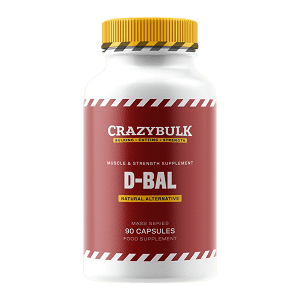- Have any questions?
- hello@bigandripped.com
What Causes Muscle Fatigue After Workout? | 7 Tips To Recover
Every gym-goer is frightened of muscle fatigue. Whether you work out for an hour or two, experiencing it is common.
However, Muscle Fatigue Recovery is possible. Continue reading to find out more!
Muscle fatigue is a final result of a hardcore workout. Still, you can’t recover from it quickly, it is likely to affect your workout largely.
It doesn’t matter if you’re in shape or obese, young or old—muscle fatigue is a common problem. Nonetheless, employing different tricks can help prevent it.
In fact, a little change in your daily routine can help reverse the effect of muscle fatigue.
Eventually, you are going to experience smashing workouts once you fight it off.
So, how to deal with Fatigue after Exercise for Days.
Before, we do so; let’s know about the common phenomenon in detail.
Let’s get started…
What is Muscle Fatigue?
Table of Contents [show]

Muscle fatigue is a natural outcome of the workout and any physical activity. Generally, athletes and gym-goers experience it regardless of the difference in their training experience.
If you feel like your body is made of Jello just after a workout, dude you are experiencing it for sure.
When you work out and exercise, your muscles exhaust. Gradually, the ability to function, sustain and performing the exercise reduces.
This lessens your ability to perform the exercise with decreased muscular force and power.
Moreover, the phenomenon can appear in different ways. Some experience it in the form of post-workout soreness, and muscle cramps. Meanwhile, others can experience it in terms of weakness, pain, muscle twitching, and even shortness of breath.
Now, you must be getting what it is in reality.
If you’re undergoing these symptoms, just don’t ignore them.
Indeed neglecting post-workout exhaustion can affect your next day’s workout.
Thus, responding appropriately is necessary to keep up with your training routine.
In fact, not treating it and leaving muscle fatigue on it is can take a serious toll on the workout routine. But, What Causes Muscle Fatigue?
Let’s find out!
What Causes Muscle Fatigue During Exercise?
Everyone experience post-workout exhaustion. Surprisingly, no one does know what causes muscle fatigue during and after exercises.
There isn’t one factor resulting in the tiredness you experience. In fact, various factors contribute to muscle fatigue during and post-training.
On the other hand, some factors are the outcome of your physiology, whereas others are the results of your lifestyle and exercise habits.
Here, we’ve listed the common factors causing muscle fatigue…
#1: Insufficient Warm-Up
How do you begin your workouts? Do you walk into the gym and begin running those heavy training tools?
Most times insufficient warm-up can lead to excessive fatigue during workouts. In such a condition, you are subjecting up to poor performance, tiredness, and even injuries.
A study present in Biology of Sport, the exercise science journal, has amazing facts to reveal. It states the importance of sufficient and appropriate warm-up.
Not only it improvises workout performances but also decreased exhaustion related injuries.
Warm-up elevates blood flow and actuates your muscles. In other words, it activates muscle tissues and makes them ready for the work.
In short, the contraction and expansion of muscle fiber become smoother.
Evidently, without a proper warm-up, unprepared muscles have to work immediately. This a strain on your body resulting in rapid post-workout exhaustion.
#2: Lactic Acid Buildup
Muscle fatigue: lactic acid. In other words, muscle fatigue means lactic acid build-up. Here’s why. Workouts lead to physical exertion.
Indeed this results in the excess production of lactic acid, which converts into lactate.
Well, when hydrogen ions merge with lactate, it works as a quick energy supply. However, after a point, it can’t.
After the possible use of lactate, the excess of lactic acid buildup in your muscle. Eventually, muscle tissues encounter highly acidic conditions.
Simply, the high acidity level in the body makes you feel weak, tired, and sore.
With the level of lactate accumulation, you can even encounter muscle cramps or spasms.
#3: Insufficient Nutrition
You might not realize but your diet has a pivotal role in your performance.
Even after having enough protein and complex carbohydrates, you are likely to face trouble workout.
Well, this is because the daily requirement of vitamins and minerals is necessary.
Surprisingly, nutrient deficiency is another culprit behind What Causes Muscle Fatigue Physiology.
Actually, the human body requires some nutrients in apt quantity for proper muscle function.
In absence of the nourishment, facing trouble in the workout is the utmost result.
In fact, magnesium, iron, potassium, calcium, and sodium have a vital role in muscle contraction, endurance, and strength. Having a deficiency of these nutrients can lead to rapid fatigue and energy issue.
Plus, increase soreness would be common trouble.
play leading roles in muscular strength, contraction, and endurance.
If you’re deficient in any of these nutrients, your muscles may produce less power, fatigue faster, and feel increased soreness after training.
#4: Anaerobic Respiration
Proper muscle function requires energy. Usually, this comes from the stored sugar or glucose in the human body. Moreover, for its conversion into energy, your muscles demand oxygen.
The entire procedure is known as aerobic respiration. Actually, it delivers the fuel to perform different low to high to intense exercise.
However, while performing high-intensity workouts, your body is unable to supply sufficient oxygen. So the muscle is unable to converting sugar for energy.
Instead, it depends on the process known as anaerobic respiration. It breaks down glucose without using oxygen.
Moreover, during this process muscles begin generating more lactic acid. Eventually, it heaps up leading to complications like weakness, fatigue, and muscle pain.
It doesn’t matter what causes muscle fatigue, some proven ways can help you avoid it.
Next, we’ve shared detailed information on this aspect.
7 Ways to Avoid Muscle Fatigue
Undoubtedly, experiencing Post Workout Fatigue Next Day is general.
Luckily, some precaution and lifestyle changes can help in Muscle Fatigue Recovery.
Here’s how you can prevent it from tolling on performance.
#1: Practice Proper Warm-Ups
Before you begin exercises, you have to warm up appropriately. In fact, it should be the #1 rule of your daily workout routine.
For instance, on lower body training day, do a warm-up targeting your lower body including glutes, quads, lower back, hamstrings, and calves.
Proper warm supply higher blood flow to these muscle groups. Hence this makes them more pliable and prepares for better performance during the workout.
Studies indicate that instead of static-dynamic warm-up and stretching is more operational for boosting energy and performance.
In fact, planning this minor physical activity, include movement and stretches similar to the workouts you’re to follow up.
#2: Eat According to Your Correct Macronutrient Ratio
Whether you are a weight lifter or a power performer, the importance of protein is well introduced.
However, declining attention to carb and fat consumption can create immense trouble.
Certainly, protein is highly important in terms of bodybuilding.
Nonetheless, carbs are the second most important muscle-building nutrients to look for.
Actually, muscle tissues need glycogen to work appropriately. Thus, you should have enough carbs in your diet.
Studies have also indicated how your daily diet should appear.
Here’s it!
- Protein: 25 to 30% of daily calories
- Fat: 15 to 20% of daily calories
- Carbs: 55 to 60% of daily calories
In case, if you have 2,000 calories per day, here’s a sample breakdown of your caloric consumption:
- Protein: 125 to 150 grams
- Fat: 33 to 44 grams
- Carbs: 275 to 300 grams
#3: Practice Proper Meal Timing
What you are having isn’t the only crucial aspect to look at. In fact, when you are having your meal is equally important. Also, it can impact the level of muscle fatigue
Consuming carbs around your training can deliver enough of the sugar-based fuel or glycogen for proper functions. Research has strong points to make in this aspect.
Actually, having cards during workouts can remarkably lessen muscle fatigue and elevate power output.
If you are into the water during workouts, having a heavy carbon-based meal at least 2 hours before your training session can turn out to be a great help.
Apart from that, the rest of the meal of the day should be at an appropriate time.
Having easy digesting carbs and proteins post-workout can refuel you and help in muscle repair. Nonetheless, the sole protein has depicted positive effects all alone.
Also, having protein in the right quantity has a real impact on your training sessions.
You can schedule the rest of your meals according to your choice.
Still, be cautious and attentive to achieve suggested quantities of protein, carbs, and fats.
#4: Stay Hydrated
Not drinking sufficient water? Well, you are likely to suffer from degrading performance.
According to a recent study, dehydration can elevate the severity of fatigue by around 70%.
Experts recommend drinking around 80 to 100 ounces of water each day. Actually, doing so is effective in lessening muscle exhaustion and boosting performance.
During workouts, you sweat and lose a significant quantity of electrolytes present in the secreted water.
Indeed these are crucial to the proper work and function of muscle tissues.
Thus, to make up for the loss, drinking enough electrolyte-infused water during workouts is necessary.
In fact, experts suggest taking around 1.5 liters of water per hour of your exercises.
#5: Improve Your Body Mechanics
Workouts and training are about shaping your body, not your ego. So, when you can’t do a specific movement properly, halt.
Reduce the load and perform it until you get it perfect.
When you’re weightlifting, be attentive to how you move. Moreover, be watchful of your muscular imbalances affecting your position and posture.
In case, your motion is restricted or you experience any tension in specific muscle groups, stretch more than usual.
Well, regular stretching can improvise body mechanics by elevating the array of motion and flexibility.
Certainly, inappropriate body mechanics can push to work hard than required.
Eventually, you would encounter Exercise Fatigue Symptoms.
#6: Allow Time for Rest and Recovery
It doesn’t matter if you’re in the middle of a demanding workout, or you are just done with one, enough recovery time is vicious.
Meanwhile, workouts, have enough time to rest between sets. This would help muscle recover from the strain of the exercises.
In fact, employing this tip in your training routine can help you maintain maximum strength, endurance, and power.
Post-workout, it’s the time for following the lead of your body. If you are exhausted, rest. This is a typical sign of the need for Muscle Fatigue Recovery.
Instead, lifting more just increase your recovery time. You can perform low-impact workouts like swimming, walking, cycling, or yoga.
Until you have fully rested and recharged, prevent from performing high-intensity exercise.
#7: Use Braces to Prevent Fatigue
Tapping or bracing your joint while performing workouts can deliver additional support and permanence. Particularly, it’s good for your knees and the lower back.
In case, you’re regularly prone to lower back and leg tiredness while exercise, you can wear a back brace or knee sleeves. This can be going great help.
Moreover, using compressive braces can help improving posture and elevating blood flow, which can prevent muscle fatigue.
Besides, for folks performing heavy, compound movements like squats or deadlifts, a weightlifting belt is highly recommended.
Now, you know how to prevent muscle fatigue.
Next, let’s see some Muscle Fatigue Recovery tips to follow up post-workout.
How to Recover from Muscle Fatigue After a Workout
Intense training can inevitably result in varying levels of muscle fatigue post-workout.
However, don’t require to worry as some natural ways can quicken muscle fatigue recovery.
Here’s how to recover muscle fatigue post-workout quickly!
#1: Rest
The prominent way to fight off muscle exhaustion is to rest appropriately.
Certainly, going to the gym every day seems the best way to progress your muscle-building goals.
However, undermining rest can leave you restless and burnout.
In fact, take rest once a week; if possible take rest for 2 days. Moreover, experts recommend not training for three days continuously.
This will provide your muscular system adequate time to recover from fatigue.
Besides, adequate sleep is necessary for muscle fatigue recovery. In fact, you should at least sleep for seven hours per night.
However, many wrestlers and bodybuilders can gain from eight to nine hours of sleep.
#2: Cold Treatment
Icing your muscle can fight out and prevent the nagging pain. Surprisingly, it derives long-term improvisations in muscular performance.
The result is present in the study by the Journal of Sport Rehabilitation.
In fact, what causes muscle fatigue post-workout is inflammation. Fortunately, cold therapy can profusely battle it off.
To receive the immense benefits of cold therapy, apply ice on the affected area every 20-minute intervals.
On the other hand, short, full-body cryotherapy sessions have also provided an effective response in terms of muscle recovery and performance.
#3: Heat Treatment
Heat agitated blood vessels and promotes blood flow to affected areas.
Elevated blood flow increases oxygen and nutrients transmission, resulting in rapid recovery and amazing performance.
Undoubtedly, heat relaxes the human body. This provides exhausted muscle the required rest.
The study suggests that heat therapy can lessen delayed-onset muscle fatigue by up to 47%.
For ultimate results, going for heat treatment for at least 20-minutes before you.
#4: Massage
This muscle fatigue recovery way is highly effective.
Massaging the affected area increases blood flow, eases tense muscles, stretches muscle fibers, and reduces pain.
A study in the Journal of Athletic Training shared conclusive facts in this term.
Well, massaging for 10 minutes three hours post-workout had 30% lesser muscle fatigue.
Another research concluded similar results. Massage remarkably lessened muscle tone and rigidity after athletes suffered muscle fatigue.
#5: Foam Rolling
Are you encountering delayed-onset muscle soreness or DOMS? Well, foam rolling can provide wonderful results in that term.
According to a study in the Journal of Athletic Training, the outcome was positive. Athletes who followed foam rolling post-workout had lesser muscle fatigue in comparison to others.
Also, their performance improved in further training sessions.
#6: Compression Clothing
Using compression clothing increases oxygen and blood flow to the fatigued muscle.
According to studies, wearing these garments after an intense workout can fire up speed up muscle recovery.
Following these ways would not make you Sleepy after Exercise in the Morning.
In fact, entertaining these in your daily workout routine would keep your performance up and workout goals on track.
Next, let’s check out the best muscle recovery supplement.
CrazyBulk D-Bal for Better Muscle Recovery

CrazyBulk D-bal is a wonderful supplement formulated from natural ingredients and constituents.
Formulated supply mega muscle gains, the supplement also increases muscle recovery.
Well, for such a remarkable difference, the potent blend promotes blood flow.
Besides, it increases nutrient and oxygen transmission to your tensed muscle.
Eventually, you are going to experience quicker muscle fatigue recovery.
Apart from these perks, the product has a lot more to offer!
- Maximum muscle gains
- Tremendous strength and stamina
- Quicker recovery
- Incredible performance and workout session
- Higher testosterone level
- And much more!
Now you are pretty aware of What Causes Muscle Fatigue After Workout and How to Recover from it.
Lastly, we’ve summed up our view on the phenomenon.
Don’t Let Muscle Fatigue Stop You
Muscle fatigue can be problematic for sure. It not only burns you out but also ruins your performance and workouts.
Not paying attention to it can make you exhausted after workout next day also.
Thus, you need to approach your workouts and recovery process strategically.
In fact, this can help you prevent muscle fatigue and even elevate your performance at the gym.
So, take enough rest, rely on appropriate nutrition, and employ strategized procedures.
This would support your muscles recuperate rapidly leading to increase and improved performance.



